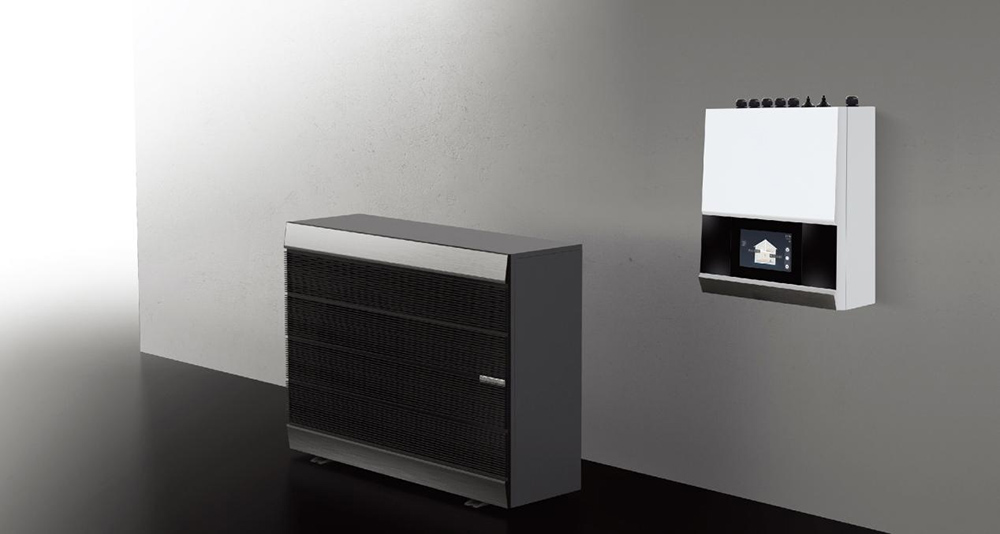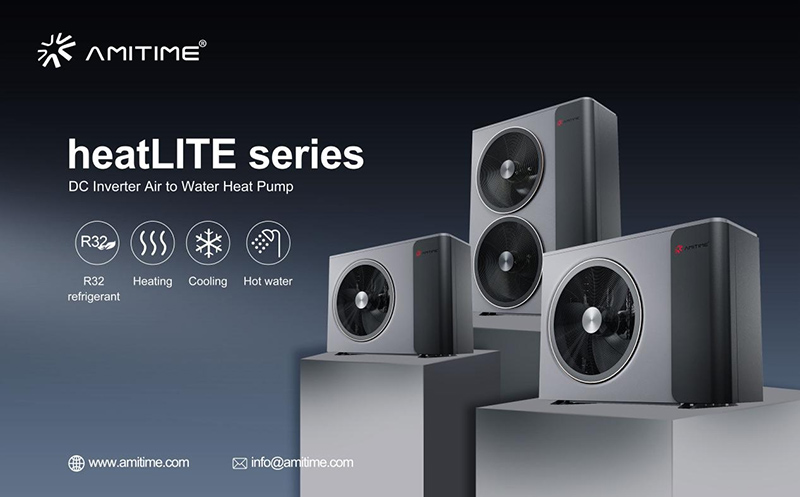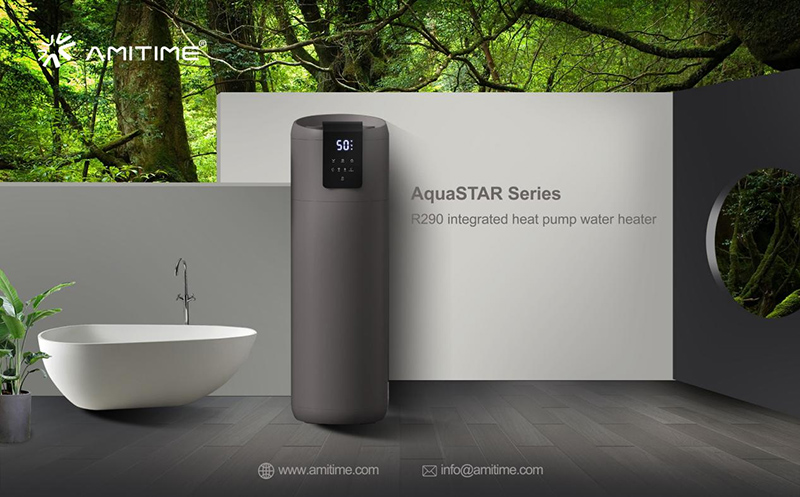In light of the severity of global climate change, green and low-carbon have become one of the core issues for economic and technological development in various countries. Against this backdrop, heating heat pumps, as an efficient and environmentally friendly heating solution, are gradually becoming a mainstream alternative to traditional heating equipment due to their significant energy-saving advantages. It is predicted that by 2025, the heating heat pump market will experience continuous growth, with market size, technological advancements, policy support, and other factors collectively shaping the future blueprint of the heating heat pump industry.

Based on industry reports and historical data analysis, the global heating heat pump market has already reached a market size of approximately USD 30 billion in 2023. It is estimated that by 2025, the global market size will further expand to over USD 50 billion, with an annual average growth rate maintained at around 10-12%. With increased government policy support, heightened environmental awareness, and the advancement of building electrification, heating heat pumps are poised for explosive growth on a global scale. This surge in demand presents a significant opportunity for businesses involved in heat pump wholesale, as they can capitalize on the expanding market and contribute to the widespread adoption of this energy-efficient technology.
As one of the largest heat pump markets globally, China will continue to grow in the field of heating heat pumps in the coming years, thanks to its vast geographical area and demand for clean energy. Especially in the northern heating regions, traditional coal-fired and gas-fired heating methods are gradually transitioning to more environmentally friendly and efficient electric heating. It is estimated that by 2025, the annual average growth rate of China's heating heat pump market will reach 15-18%, with the market size potentially exceeding RMB 20 billion.
With the Chinese government's advancement of the "dual carbon" (carbon peaking and carbon neutrality) goals, the penetration rate of heating heat pumps in China is expected to reach 30%-35% by 2025. This increase will be particularly evident in new construction projects and energy-saving renovation projects, where the market penetration of heating heat pumps and the range of heat pump supplier will further rise.
In Europe, especially in countries such as Sweden, Germany, and France, the heating heat pump market has already matured. The EU's stringent carbon emission standards and renewable energy policies will continue to drive the adoption of heat pump products. It is estimated that by 2025, the European heating heat pump market will grow to a size of €12 billion, with an annual average growth rate of around 9-10%. Financial subsidies, tax reductions, and other incentive policies offered by many European countries will further encourage consumers and businesses to invest in heat pump systems.

The North American market has gradually increased its support for green buildings and energy-efficient products in recent years. According to market trends, it is estimated that by 2025, the heating heat pump market in the United States and Canada will expand at an annual average growth rate of 8-10%, with a market size expected to reach $5 billion. The incentive policies provided by the US government for green retrofitting projects of residential and commercial building heating systems are becoming important factors driving market growth.
With the continuous growth of market demand, the technology of heating heat pumps has also been continuously advancing. From initial single-function systems to today's multi-functional systems that integrate heating, cooling, and hot water supply, significant achievements have been made in product design and technological advancements in heating heat pumps. In the coming years, technological innovations in heating heat pumps will continue to drive market development.
The technology of heating heat pumps in the future will focus more on energy efficiency improvement and environmental friendliness. With continuous innovations in compressor technology, heat exchangers, and fluid control technology, the coefficient of performance (COP) of heat pump equipment will further increase. Heating efficiency in low-temperature environments will be optimized, addressing the issue of low heat pump efficiency in such conditions in the past. Additionally, natural refrigerants (such as R290 and R32) will gradually replace traditional HFC refrigerants to further reduce carbon emissions.
With the continuous advancements in smart home and Internet of Things (IoT) technology, intelligentization will become an important development direction for heating heat pumps. Heating heat pump systems will be able to monitor data such as temperature, humidity, and energy efficiency in real-time through AI algorithms and IoT technology, automatically adjusting their operating modes to achieve optimal heating effects and minimize energy consumption. Users can remotely control the heat pump devices through mobile apps, voice assistants, and other methods, enhancing ease of use.
Ground-source heat pumps and air-source heat pumps each have their unique advantages, and in the future, they will be more closely integrated. Ground-source heat pumps leverage the stable underground temperature to provide higher energy efficiency, but their initial investment is relatively large, making them suitable for large-scale building projects. Air-source heat pumps, on the other hand, are widely used due to their easy installation and flexibility. In the future, composite heat pump systems that combine the technologies of both will become the mainstream in the market, effectively enhancing the efficiency and economy of the entire system. As one of the professional commercial air source heat pump manufacturers, Amitime is experienced in offering eco-friendly heating pump options.

The integration of heating heat pumps with green energy will be a highlight of future development. With the popularization of renewable energy sources such as solar and wind power, heating heat pump systems will increasingly rely on green electricity for operation. Combining solar photovoltaic panels with heat pump systems can reduce the burden on the power grid while achieving a lower carbon heating effect.
The market promotion of heating heat pumps cannot be separated from the policy support of governments, especially in the context of achieving carbon neutrality goals, where the guiding role of governments will become increasingly important.
Under the framework of China's "dual carbon" strategy, the Chinese government has introduced a series of policy measures to promote the application of heating heat pumps. Through financial subsidies, tax reductions and exemptions, green certifications, and other measures, consumers and Chinese heat pump manufacturers are encouraged to install high-efficiency heating heat pump systems. It is estimated that by 2025, heating heat pumps will become the mainstream heating method for residential and commercial buildings in northern China, with a market penetration rate expected to reach 35%-40%.
The EU's policy support for heating heat pumps is mainly reflected in strict carbon emission standards and financial subsidy policies. The EU promotes the "European Green Deal" to accelerate the improvement of building energy efficiency and supports the installation and use of heat pump products through subsidies, loans, and other policies. In 2025, the heating heat pump market in EU member states will continue to grow, with an expected market size exceeding €12 billion.
In the United States and Canada, policy support for green buildings, renewable energy, and energy-saving renovation projects will further drive the development of the heat pump industry. The energy conservation and emission reduction policies launched by the U.S. federal government and state governments, especially the subsidies for heat pump installations targeted at low- and middle-income families, will significantly promote the market penetration of heating heat pumps.

With the continuous growth of market demand, competition in the heating heat pump industry will also intensify. Companies will strive to capture market share through technological innovation and brand differentiation.
Competition among enterprises is not only reflected in pricing, but more so in areas such as technological innovation, energy efficiency improvement, intelligent control, and green energy integration. Being able to provide efficient, low-carbon, and intelligent heat pump systems will become the main competitive advantage in the market.

In the global heat pump market, leading air source heat pump China brands including AMITIME will achieve brand differentiation through robust technical research and development, comprehensive after-sales service, and superior product quality. Additionally, companies will satisfy the needs of different regions and users through innovative business models, customized products, and precise market positioning.
In 2025, the heating heat pump market will enter a period of rapid development. With the enhancement of global environmental awareness, increased policy support, and continuous technological innovation, the heat pump industry will face unprecedented development opportunities. For heat pump enterprises, this is an era full of both challenges and opportunities. Only by continuously innovating and closely following market demands and policy orientations can they stand out in this rapidly developing industry.
Hydronic wall mounted fan coil units BM series
Hydronic fan coil heating and cooling SU series